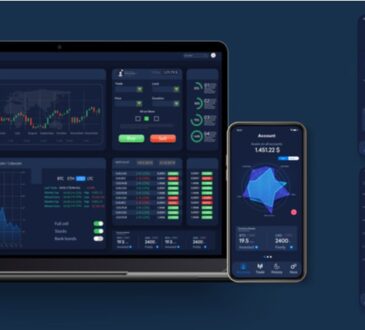
We never know when an emergency strikes. But being prepared is the key. We can always get a loan to alleviate our financial problems. Personal loans are available in many forms. You can get instant loans, pre-approved personal loans, and more. These loans are highly preferred because they are easy to get.
Getting a personal loan is easy nowadays, thanks to the many online lenders available. But the problem comes when choosing the right lender. With so many of them available, it could be like finding a needle in a haystack. But worry not. This article will give insights on choosing the right emergency personal loan provider.
Factors to consider when choosing the right emergency personal loan provider
1. Eligibility criteria used
Each lender has eligibility criteria that every borrower must meet. If you don’t meet the set requirements, you cannot get approved for a loan. Some will need you to be of a certain age and be earning a salary every month. Others will require you to have a good credit score. A lender will minimum eligibility is the best. Avoid lenders with complicated methods of eligibility.
2. Credit score needed
Your credit score measures your creditworthiness and due to that, it is used when approving for your loan. Not only does a higher credit score enhance the likelihood of loan approval, but it also influences the loan amount and the terms associated with it, such as interest rates and equated monthly installments.
Your credit score shows your financial well-being, enabling lenders to gauge your ability to repay debts. Ideally, maintaining a high credit score will help you secure a personal loan on favorable terms.
3. The interest rates the lender charge
The interest rate on a personal loan is typically determined by two factors: your credit score and the duration of the loan. Lenders use low-interest rates as a way to attract borrowers, but the best rates are given to those with high credit scores. However, if you have a good credit score, you may still be able to secure a slightly lower interest rate.
To increase your chances of getting emergency loan with a reasonable interest rate, you can look for lenders who consider other factors, such as your work experience or educational background.
4. Additional charges or fees
In addition to the interest rate, other aspects are involved in obtaining a loan. Financial institutions or banks impose a fee to process your loan application. This fee can be a fixed amount or a percentage of the loan amount, which can increase the cost of your loan.
If you have enough money, consider loan prepayment to reduce the EMIs. However, note that many financial institutions and banks charge prepayment fees if you decide to foreclose your Loan. These fees vary depending on the lender.
5. Loan tenure the lender provides
It is recommended to repay your loan as soon as possible after borrowing it. Lenders offering shorter repayment periods will naturally require higher equated monthly installments (EMIs) since there are fewer installments to spread the payment over.
Failing to repay your loan on time can have a negative impact on your credit score, which may discourage lenders from approving your loan. Therefore, while you may want to free yourself from debt earlier, it is crucial to assess your ability to repay and choose a loan tenure that suits your circumstances best.
6. How fast the lender approves the loan
Banks and other online lenders provide personal loans of various kinds. Some loans are readily available, like Instant and pre-approved personal loans. In contrast, others, like regular personal loans, can take longer. In emergencies, it is recommended to approach your current lender or bank, as they can promptly offer you a personal loan at an appealing interest rate. Some instant loans can be obtained within a day, usually less than 24 hours to 48 hours. Regular Personal loans will take longer because they require approval for credit history and other formalities.
7. Customer experience
Also, customer service matters when choosing a lender. Check the ratings and the hours of operation. Most lenders have email forms to enable borrowers to ask questions, and others have a chat or phone option. So, check if the lender has a good customer experience.
Choosing the best loan provider
- Selecting a lender will depend on your needs, finances, and the loan you can get.
- You must take note of your choices depending on what is the most important. It is worth considering rates, fees, and amount of loan.
- Also, you can apply for prequalification with every lender to check the rates. This won’t hurt your credit, and it will be easier to compare your choices.
- Check the terms of the lender and fill out the application form.
Bottom line
It is not an easy task to find a best lender for a personal loan. There are numerous criteria to use when looking for a loan provider. You should check their eligibility criteria, the rates offered, how fast they approve a loan, and any fees charged on loans.
Whenever you apply for a personal loan, ensure you have a good credit score, and you qualify. Personal loans are the best when you are in urgent need of cash. Therefore, look for the best lender with better loan offers.





